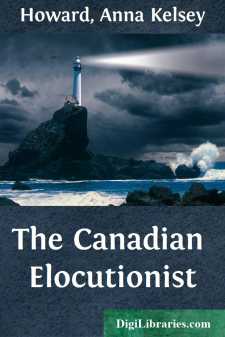Categories
- Antiques & Collectibles 13
- Architecture 36
- Art 48
- Bibles 22
- Biography & Autobiography 813
- Body, Mind & Spirit 142
- Business & Economics 28
- Children's Books 15
- Children's Fiction 12
- Computers 4
- Cooking 94
- Crafts & Hobbies 4
- Drama 346
- Education 46
- Family & Relationships 57
- Fiction 11828
- Games 19
- Gardening 17
- Health & Fitness 34
- History 1377
- House & Home 1
- Humor 147
- Juvenile Fiction 1873
- Juvenile Nonfiction 202
- Language Arts & Disciplines 88
- Law 16
- Literary Collections 686
- Literary Criticism 179
- Mathematics 13
- Medical 41
- Music 40
- Nature 179
- Non-Classifiable 1768
- Performing Arts 7
- Periodicals 1453
- Philosophy 64
- Photography 2
- Poetry 896
- Political Science 203
- Psychology 42
- Reference 154
- Religion 513
- Science 126
- Self-Help 84
- Social Science 81
- Sports & Recreation 34
- Study Aids 3
- Technology & Engineering 59
- Transportation 23
- Travel 463
- True Crime 29
The Canadian Elocutionist
Description:
Excerpt
INTRODUCTION.
Of the importance of the study of Elocution as part of a good education there can be no question. Almost every one is liable to be called upon, perhaps at a few minutes notice, to explain his views and give his opinions on subjects of various degrees of importance, and to do so with effect ease in speaking is most requisite. Ease implies knowledge, and address in speaking is highly ornamental as well as useful even in private life.
The art of Elocution held a prominent place in ancient education, but has been greatly neglected in modern times, except by a few persons—whose fame as speakers and orators is a sufficient proof of the value and necessity of the study. The Ancients—particularly the Greeks and the Romans—were fully conscious of the benefits resulting from a close attention to and the practice of such rules as are fitted to advance the orator in his profession, and their schools of oratory were attended by all classes; nor were their greatest orators ashamed to acknowledge their indebtedness to their training in the art for a large portion of their success. The Welsh Triads say "Many are the friends of the golden tongue," and, how many a jury has thought a speaker's arguments without force because his manner was so, and have found a verdict, against law and against evidence, because they had been charmed into delusion by the potent fascination of some gifted orator.
As Quintilian remarks: "A proof of the importance of delivery may be drawn from the additional force which the actors give to what is written by the best poets; so that what we hear pronounced by them gives infinitely more pleasure than when we only read it. I think, I may affirm that a very indifferent speech, well set off by the speaker, will have a greater effect than the best, if destitute of that advantage;" and Henry Irving, in a recent article, says: "In the practice of acting, a most important point is the study of elocution; and, in elocution one great difficulty is the use of sufficient force to be generally heard without being unnaturally loud, and without acquiring a stilted delivery. I never knew an actor who brought the art of elocution to greater perfection than the late Charles Mathews, whose utterance on the stage was so natural, that one was surprised to find when near him that he was really speaking in a very loud key." Such are some of the testimonies to the value of this art.
Many persons object to the study of elocution because they do not expect to become professional readers or public speakers, but surely this is a great mistake, and they might as well object to the study of literature because they do not expect to become an author; and still more mischievous in its results is the fallacy, only too current even among persons of intelligence, that those who display great and successful oratorical powers, possess a genius or faculty that is the gift of nature, and which it would be in vain to endeavour to acquire by practice, as if orators "were born, not made," as is said of poets....


